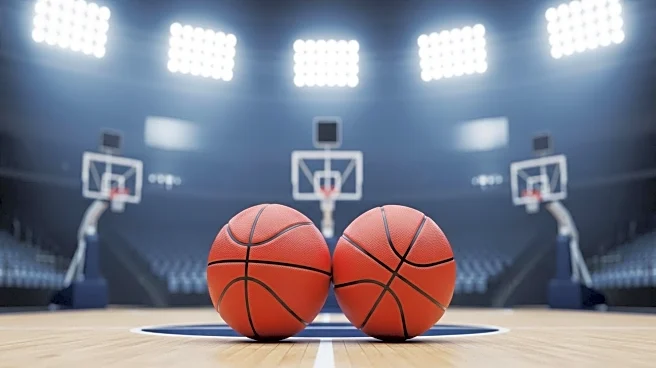What's Happening?
Bruce Pearl has announced his resignation from his position at Auburn University, transitioning to a role as a PR Ambassador for the school. His departure marks a significant change in leadership for Auburn's basketball program. Pearl's son, Steven Pearl, will be stepping into the head coach position, despite having no prior experience as a head coach. This move highlights the influence of nepotism in sports, as Steven Pearl is closely connected to Todd Golden, a notable figure in basketball circles. The decision is expected to bring a new dynamic to Auburn's basketball team, with Steven Pearl's leadership style and strategies under scrutiny as he takes on this new role.
Why It's Important?
The transition in Auburn's basketball leadership could have significant implications for the team's performance and recruitment strategies. Bruce Pearl has been a prominent figure in college basketball, and his departure may affect Auburn's standing in the competitive landscape of college sports. Steven Pearl's appointment raises questions about the impact of familial connections in sports management and the potential challenges he may face due to his lack of head coaching experience. This change could influence Auburn's future prospects in national tournaments and its ability to attract top-tier talent.
What's Next?
As Steven Pearl assumes the head coach role, Auburn's basketball program will likely undergo strategic adjustments. Observers will be keen to see how Steven Pearl adapts to the pressures of leading a major college team and whether he can maintain or enhance Auburn's competitive edge. The team's performance in upcoming seasons will be closely watched, and any shifts in recruitment or game strategy will be analyzed for their effectiveness. Auburn's administration and fans will be looking for signs of continuity or improvement under the new leadership.
Beyond the Headlines
The appointment of Steven Pearl underscores the ongoing debate about nepotism in sports and its impact on team dynamics and leadership effectiveness. This situation may prompt discussions about the criteria for leadership roles in college sports and the balance between experience and personal connections. Additionally, the transition could influence Auburn's cultural and ethical approach to sports management, potentially setting precedents for other institutions facing similar leadership changes.










